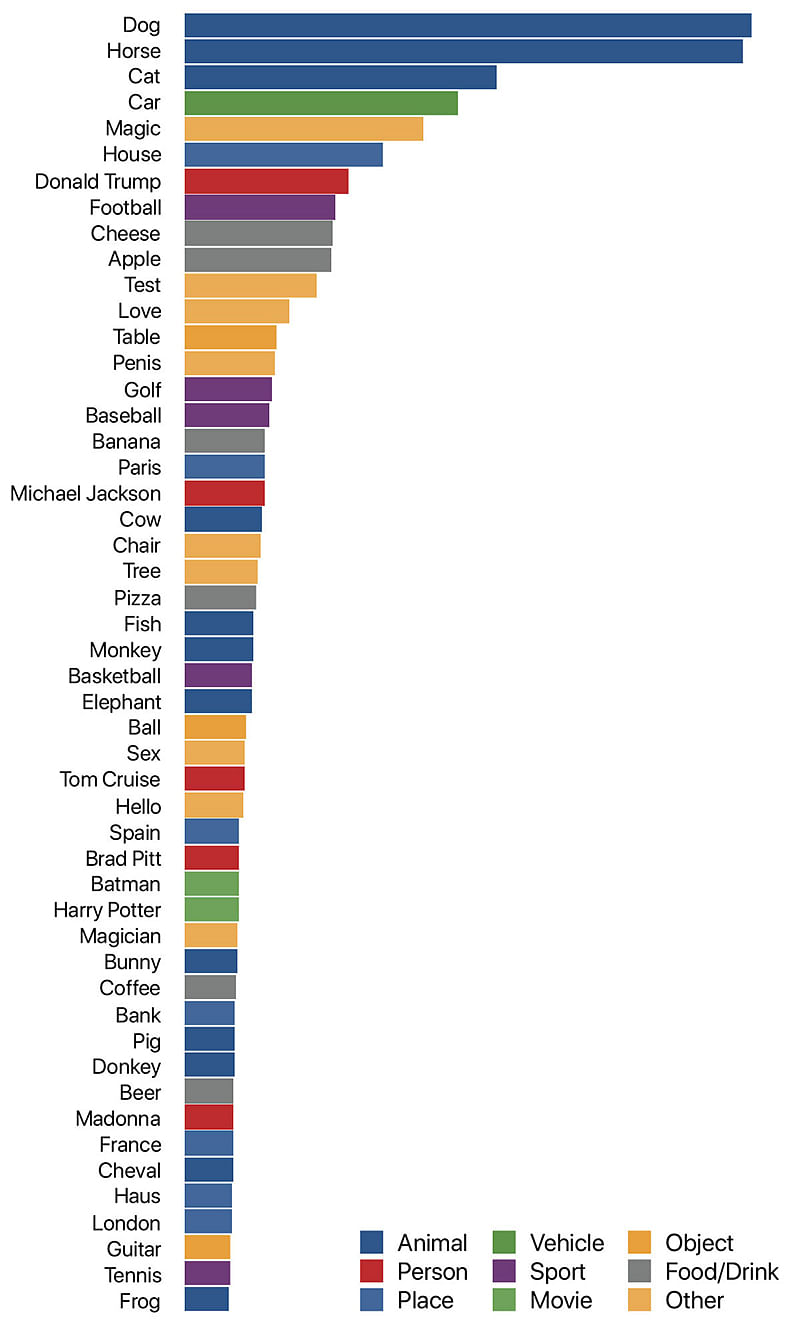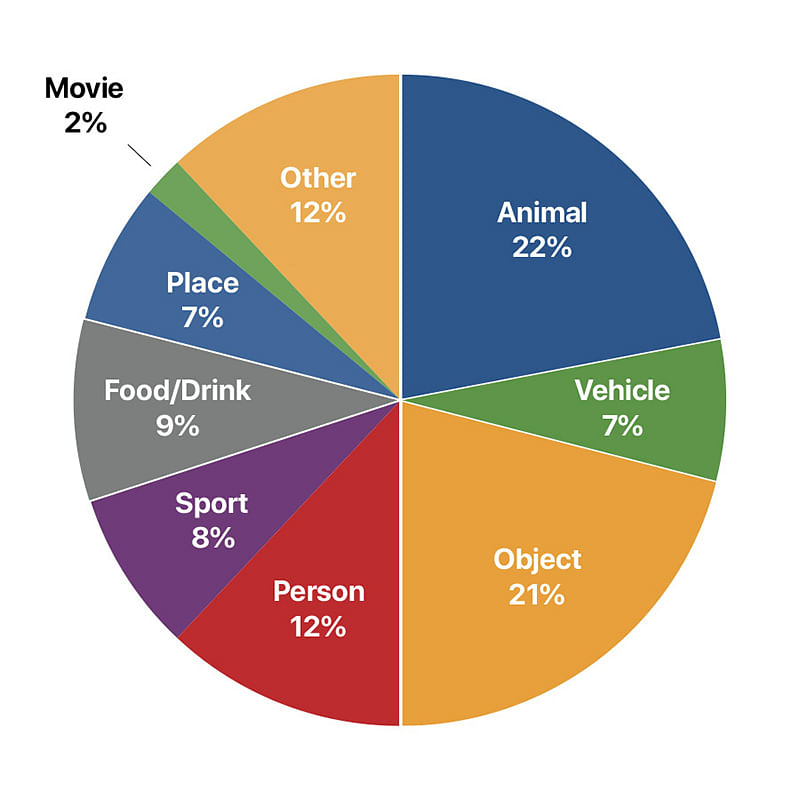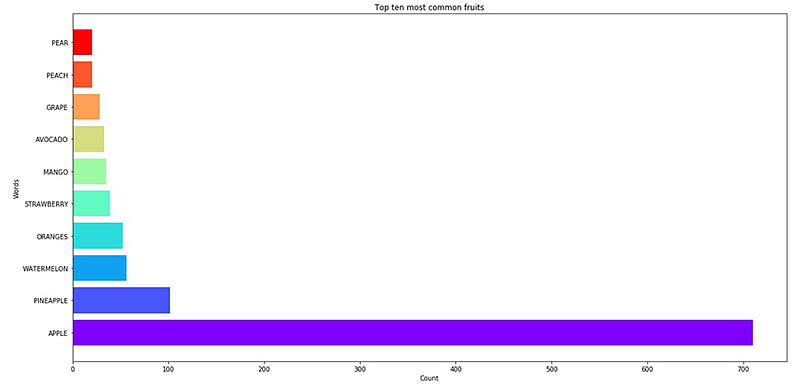The Largest Magic Survey In History?
By Marc Kerstein - Tuesday, August 6, 2019
Using Trends To Maximise Hits
If you regularly perform an effect which gives a spectator a genuinely free choice, after a while you'll probably begin to notice certain trends in their responses.
Let's say you perform a prediction effect in which you ask a spectator to think of a city, where the method relies on secretly switching out your prediction. During the last ten performances of the trick, you've noticed that five spectators have thought of Paris - the most popular choice. And so you begin writing "Paris" on the prediction to-be-switched, knowing that should you get lucky, the cleanliness of that reveal will produce a stronger and more direct effect than the one you had planned.
A hit-rate of five out of ten indicates a reasonable likelihood, but the sample size is fairly small. But imagine if you had access to a whole database of responses gathered from hundreds of thousands of performances of similar effects across the globe. You'd have a much clearer idea about the likelihood of what someone might say. If you wanted to change the instruction to "think of an animal", such a database could tell you the most likely response. Similarly, if you wanted to perform the same effect in another language, you could see whether or not the popular responses differ.
A few years ago, I released a digital book test called "WikiTest" in which the spectator is given a free choice of a word or phrase. As of July 2019, WikiTest users have accumulated approximately 210,000 performances. I believe this gives us the largest magic-based survey in history, producing an insight into the kinds of things people think of when given a free choice within the context of a magic effect.
These results do have some limitations however. The searches gathered for this study are completely anonymous: no information is collected pertaining to the time of the performance, the location of the performance, the performers themselves, nor the spectators. This means the data itself may need a degree of interpreting, and there's no guarantee our conclusions will be accurate. "Tennis" might only be a more popular search term during the Wimbledon tennis tournament, for example, and may remain less popular throughout the rest of the year.
The 210,000 performances comprise over 65,000 different search terms. Of those 210,000 searches, 45,500 have been searched for only once, meaning that 78% of all performances have involved a word or phrase that has also been searched for by someone else.
Top Searches
The top 50 WikiTest responses overall are:

- Interestingly, "Dog" is almost twice as likely to be searched for as "Cat".
- The next most popular animal to be searched for after a cat is a cow, which is only 25% as likely.
- "Car" is by far the most popular type of vehicle to be named.
Categories
The top 100 unique search terms represent 35,000 performances - 17% of the total. Categorising these searches shows the following:

And the top 3 of each category are:
- Animals: Dog, Horse, Cat
- Vehicles: Car, Boat, Bicycle
- Objects: Table, Ball, Guitar
- People: Donald Trump, Michael Jackson, Tom Cruise
- Sports: Football, Golf, Baseball
- Foods: Cheese, Apple, Banana
- Drinks: Coffee, Beer, Water
- Countries: Spain, France, Italy
- Places: Paris, Spain, Bank
- Movies: Batman, Harry Potter, Star Wars
- Superheroes: Batman, Superman, Spiderman
- Car Manufacturers: Ferrari, BMW, Ford
- Dates: Christmas, Halloween, Tomorrow
- Fruits: Apple, Pineapple, Watermelon
- Instruments: Guitar, Piano, Violin
- Vegetables: Potato, Carrot, Tomato
Of course, this is not an exact science. Performances of WikiTest vary in presentation, context and language, all of which affect the term searched for. Asking a spectator to "think of an animal" as opposed to "think of anything" will likely yield a different outcome, and there's no way of knowing the specific wording of the instructions that produced these results, but I believe the large sample size makes them worthy of our attention nonetheless.
I'm particularly interested in the results that appear in second or third place, or any popular results that feel somewhat less obvious. In a card trick, if you've predicted that a spectator is thinking of the Ace of Spades, then the effect is more likely to be perceived for what it is - a lucky guess. But if you've predicted they'd think of the Four of Clubs for example, then the effect is much stronger. Similarly, an apple could feel like an obvious fruit to reveal, but one might wish to predict a pineapple, knowing that this is the second most popular choice. A hit for such an apparently obscure answer might well result in a stronger effect.

Notes:
- A horse is seen during the performance of WikiTest, presumably introducing some bias towards the horse search result.
- Some search terms can be listed under multiple categories (Chicken: animal/food, Batman: movie/person/superhero).
Languages
Although WikiTest does not have access to the location of the performance, it can nevertheless detect the language of the search terms, which gives some insight into how different languages affect results.
WikiTest searches were detected in 86 languages. The most commonly used language is English, followed by French, Spanish and then German.
The top non-English language responses are:
- French: Cheval (Horse), Chien (Dog), Voiture (Car)
- Spanish: Casa (House/Home), Perro (Dog), Magia (Magic)
- German: Haus (House/Home), Hund (Dog), Pferd (Horse)
- Italian: Cavallo (Horse), Gatto (Cat), Amore (Love)
- Dutch: Voetbal (Football), Hond (Dog), Banaan (Banana)
- Swedish: Katt (Cat), Dig (Dog), Häst (Horse)
- Portuguese: Carro (Car), Amor (Love), Cavalo (Horse)
Notes:
- Again, as a horse is seen in the performance, this has likely introduced some bias.
- Interestingly, whilst "Love" is the 12th most popular search term in English, it appears in the top three in Portuguese and Italian.
So there we have it: probably the largest magic-based survey in history. Hopefully some of this could be useful in your performances, and increase the likelihood of a hit.
And if you haven't got it already, here's where you can get "WikiTest".
Back to blog homepage
Similar posts on the blog:

